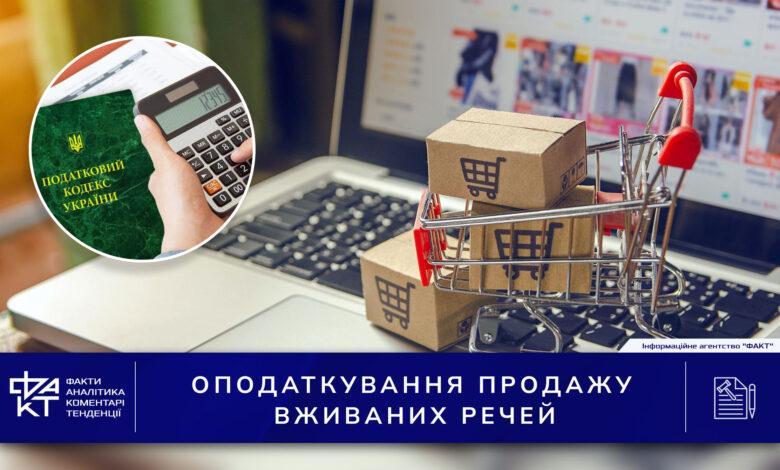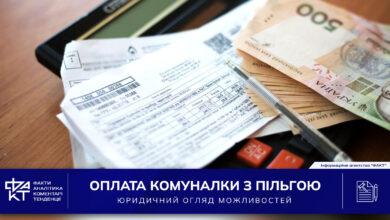Second-hand sales: when is the obligation to pay tax on used items?

Recently, news feeds and social networks have been abuzz with news about mandatory taxation when selling second-hand items. From the point of view of logic, this should not be the case – you receive a salary and pay tax on it, then when you buy a thing in a store you also pay tax, and then you have to pay tax, why did someone like this thing for 3 kopecks instead of taking it to the trash? From the point of view of ecology, this also does not stand up to any criticism, because by giving a second life to a used thing, we save the resources of our planet, which are not unlimited. So, for example, it takes 7.5 thousand liters of water to produce one pair of jeans, despite the fact that 10% of the population of our planet does not have access to fresh water. The economic situation in countries where a significant part of the population wears second-hand clothes does not add optimism either. But it is impossible to buy a baby carriage or a bicycle in these stores. And sometimes, for mothers on maternity leave, the proceeds from the sale of things that are no longer needed by the little ones will not be superfluous.
However, looking for logic in taxation is futile. As they say, two things cannot be avoided – death and paying taxes. What does the Ukrainian legislation say about the taxation of the sale by an ordinary citizen of his own unnecessary second-hand things? The editors of IA “FACT” asked the lawyers of the “Repeshko and Partners” bar association to comment on this issue.
The State Tax Service of Ukraine itself stated the following on its official website and noted that the information that the tax office allegedly started fining sellers from OLX, Promua, social networks and other platforms and automatically tracks all money transfers to people’s accounts, even if they sell personal items online, is not true.
At the same time, tax officials emphasized the following points:
– the sale of individual property (personal belongings) is not considered a basis for financial or administrative responsibility for violating the requirements of current tax legislation;
– only a systematic sale and at the same time a homogeneous assortment of goods has signs of entrepreneurial (economic) activity. This does not apply to the sale of individual property (personal belongings) by citizens using such electronic trading platforms as OLX, Prom and any social networks;
– strengthening control over Internet sales is carried out to prevent abuse and tax evasion in the field of business activity.
However, this explanation is not a rule of law, but only the view of the controlling body on the current situation. It should be noted that the Tax Code of Ukraine (PKU) does not specify a direct exemption from taxes for this type of transactions, so it is necessary to systematically analyze the norms of the law from this point of view. According to p.p. 14.1.202 PKU sale (realization) of goods – any operations carried out in accordance with sales contracts, mines, supply and other economic, civil law contracts, which provide for the transfer of ownership rights to such goods for a fee or compensation, regardless of the terms of its provision, as well as operations for the free provision of goods.
Subclause 14.1.244 of the Code of Civil Procedure it is determined that goods are tangible and intangible assets, including land plots, land shares (shares), as well as securities and derivatives used in any operations, except for their issue (issue) and repayment. At the same time PKU does not contain the concept of “used goods”.
The Economic Code of Ukraine, which will expire in August of this year, defines entrepreneurship as an independent, initiative, systematic, at its own risk economic activity carried out by business entities (entrepreneurs) with the aim of achieving economic and social results and making a profit. Based on this, if the activity is not systematic and does not involve making a profit, then it is not an entrepreneurial activity. It should be noted that according to Art. 58 GKU a business entity is subject to state registration as a legal entity or an individual entrepreneur in accordance with the procedure established by law. Therefore, if a person systematically and permanently sells unused things, he must be registered as a business entity and pay taxes. Everything is clear with this.
At the same time according to that in accordance with p.p. 168.2.1 PKU a taxpayer who receives income from a person who is not a tax agent and foreign income is required to include the amount of such income in the total taxable income of the reporting tax year, as well as to pay tax on such income.
Total taxable income is any taxable income accrued (paid, provided) for the benefit of the taxpayer during the reporting tax period. The complete list of incomes that are included in the total monthly (annual) taxable income of the taxpayer is defined p.p. 164.2 of the PKU, which, in particular, include other incomes, except those specified in Art. 165 PKU.
Thus, if an individual systematically sells second-hand goods over a significant period of time in order to obtain profits, such an individual must be officially registered as a business entity and pay taxes according to the chosen taxation system. At the same time, the sale of individual used property (personal belongings) is not the subject of interest of tax authorities and is not considered a basis for financial or administrative responsibility for violating the requirements of current tax legislation.
As we can see, the current legislation interprets this situation from different angles. The tax office also does not establish clear quantitative criteria or limits for determining when the sale of used items becomes a systematic activity and is subject to taxation. Each case will be considered individually.
Selling an extra jacket, children’s clothes, an old bicycle or a set of dishes is a common practice for many. It is especially convenient to do this through online platforms. But even within the limits of domestic sales, the question arises: when will the tax authorities consider such activity as a source of taxable income? This is where the most interesting thing begins – because officially no one forbids you to sell your used item, but under certain conditions you can suddenly fall into the category of those whom the state considers tax payers.
There are several key criteria that the tax office will pay attention to in order to distinguish the ordinary domestic sale of personal belongings from actual commercial activity.
- Regularity of sales. If the sale is an episodic action, the tax authorities take it easy. But when ads appear every day or even several times a day, for several weeks or months, the situation changes. Such activity is no longer similar to getting rid of excess, but to systematic implementation. If this continues for months or years, the regulatory authorities may conclude that there is regular income.
- Assortment. A private person who is actually selling their own usually does not have too many choices. Several dresses of the same size, winter boots, a couple of T-shirts – it looks natural. But when 50 dresses from XXS to XXL appear in the ads, or dozens of things in packages with price tags, suspicion arises about the commercial nature of the sale. A person could hardly carry all this or collect it “accidentally”.
- Homogeneity of the product. A real household sale is always a mix. Clothes, books, kitchen utensils, leftover building materials, an old lamp and TV. When the seller’s profile is filled with dozens of ads of only one category – for example, used children’s clothes or used appliances from Germany – this is a hint of specialization, and not a sale from an old closet.
- Signs of business. The tax office also pays attention to external signals of commerciality: for example, whether goods are purchased specifically for resale, whether there is a warehouse for storage, whether trade is conducted from business accounts on marketplaces or in social networks. The presence of systematic logistics and communication with customers, template descriptions, professional photos — all this may indicate entrepreneurial activity without registration.
- Amount of income. The tax service focuses not only on formal features, but also on the expediency of control. If a person sells things for several hundred hryvnias once every six months, the tax office simply does not have the motivation and resources to check it. But if the amount of 1,000–2,000 UAH is regularly received on the card during the month, and the total number of transactions indicates profitable activity, the interest in such a person is quite real.
In all these cases, a combination of factors is important. One or two signs do not yet create grounds for tax claims, but if your activity looks systematic, commercial and brings regular income, the tax authorities may well perceive it as business activity without registration, with all the consequences.
So, theoretically, if a person sells a children’s bicycle, three sweaters, two pans and boots in a year, it should not attract the attention of the tax authorities, and therefore taxation. However, we know that there are citizens who buy second-hand items by weight, then wash them, iron them and sell them individually for different money. It is precisely such cases that can attract the attention of tax officials, given the presence of one hundred and one ads with women’s dresses and blouses of any size.
However, the government has currently submitted to the Verkhovna Rada a draft law “On Amendments to the Tax Code of Ukraine and other legislative acts regarding the implementation of international automatic exchange of information on income received through digital platforms.” Realizing that citizens will not voluntarily come out of the shadows, and the tax office does not have such a resource to constantly check everyone for benevolence, the state authorities decided to come from the other side.
This draft law envisages the introduction of amendments to Article 163 of the Civil Code, according to which the object of taxation will be the income received by a natural person – an accountable seller from carrying out reporting activities through at least one platform, which is accordingly subject to taxation in accordance with the procedure established by Article 178-1 of the Civil Code. The platform in this case is just what is meant OLX.ua, Рrom do. and other similar marketplaces.
A seller will be considered a platform user (individual or organization) who, based on a contract with the platform operator, is registered on the platform to carry out reporting activities, and an accountable seller will be any active seller. At the same time, the reportable activity will be considered any of the following types of activity carried out by the seller through the platform for a fee:
- leasing real estate, including residential and non-residential real estate, as well as any other real estate and parking spaces;
- personal services;
- sale of goods;
- leasing of vehicles.
At the same time, the platform operator will also become a tax agent for personal income tax, which is 18%, by the way.
It is currently unknown whether this project will become law, but the average citizen needs to have a clear idea that the state is actively looking for ways to increase budget revenues. It should be noted that the fine for carrying out unregistered business activity ranges from 17,000 to 34,000 hryvnias for the first violation.





